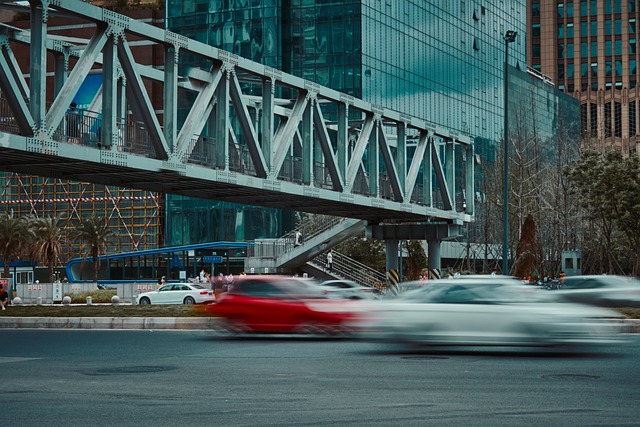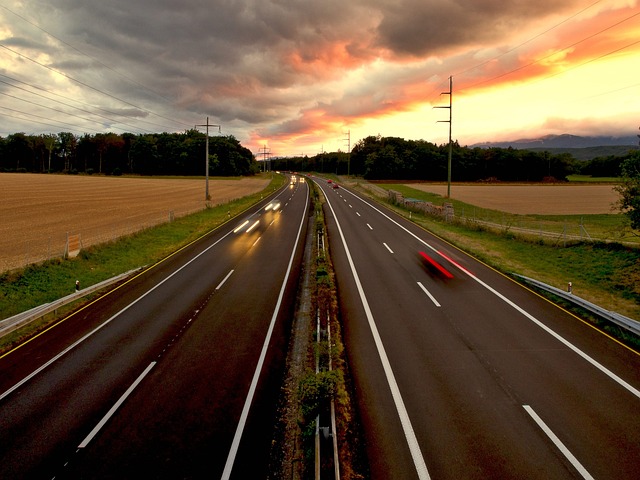We’ve all been there: cruising down the highway, feeling the need to pick up the pace a bit. But how fast is too fast? When does a speeding ticket morph into a criminal offense with serious repercussions? In this article, Cheapinsurance.com dives into the legal side of speeding, exploring the difference between a citation and a crime, and the factors that can land you in hot water.
Key Takeaways:
- Speeding is not always a crime, but exceeding a specific threshold or reckless driving can elevate it to one.
- The consequences of criminal speeding are far more severe than a speeding ticket, potentially including jail time, hefty fines, and license suspension.
- To avoid getting a ticket or facing criminal charges, obey the posted speed limits and adjust your speed for weather conditions and traffic flow.
- Planning your trip, using cruise control cautiously, and being aware of speed cameras and enforcement zones can all help you stay within the legal limit.
- Prioritizing safe driving and arriving at your destination safely is paramount, even if it means taking a few extra minutes.
Is Speeding Always a Crime?
Most speeding violations are considered infractions, punishable by fines and potential points on your license. However, exceeding the speed limit can become a crime under certain circumstances.
Here’s where things get a little more complex. Speed limits themselves aren’t always the sole determining factor in criminal speeding.
What is it Considered Criminal?
There are two main ways speeding can be considered criminal:
- Exceeding a Specific Speed: Some states have designated thresholds for criminal speeding. Going above this limit, regardless of the posted speed limit, automatically elevates the offense to a crime. For example, some states might classify exceeding 100 mph as criminal speeding, even on a highway with a posted limit of 70 mph.
- Reckless Driving: Speeding becomes a crime when it’s coupled with a blatant disregard for the safety of yourself and others:
- Excessive Speeding: While exceeding a specific threshold might be a state-by-state issue, grossly exceeding the posted speed limit can be considered reckless driving in any jurisdiction. Imagine speeding through a school zone at double the limit, a clear example of reckless driving.
- Conditions: Speeding in adverse weather conditions like heavy rain, fog, or snow significantly increases the risk of an accident. Driving at a speed that is unreasonable for the conditions can be considered reckless.
- Erratic Driving: Weaving in and out of traffic, tailgating, or sudden lane changes while speeding all point to reckless driving.

How Do the Consequences Differ Between Speeding Tickets and Criminal Speeding?
The penalties for speeding tickets are typically fines and potential points on your license. However, the consequences for criminal speeding can be much more severe:
Jail Time: Depending on the severity of the offense and any injuries caused, criminal speeding can lead to jail time, ranging from a few days to more than a year.
Heavy Fines: Criminal speeding convictions often come with hefty fines that can significant.
License Suspension or Revocation: A criminal speeding conviction can result in a suspended or revoked driver’s license.
Increased Insurance Rates: A criminal speeding conviction will likely lead to higher car insurance rates. You will have to file an SR22 to reinstate your license.
Criminal Record: A criminal speeding conviction will be on your record, potentially impacting future job opportunities. Your auto insurance premium will also be impacted for an extended period of time.
What Are the Factors That Can Turn Speeding Into a Crime?
As mentioned earlier, exceeding a specific speed limit or reckless driving can elevate speeding to a crime. Here’s a deeper look at the factors that can contribute to a criminal speeding charge:
Speeding by a Significant Margin: The greater you exceed the speed limit, the more likely you are to face criminal charges.
Causing an Accident: If your speeding results in an accident, especially one with injuries or fatalities, it will likely be considered criminal speeding.
Prior Offenses: A history of speeding tickets or reckless driving convictions can increase the chances of a speeding violation being treated as a crime.
Evading Law Enforcement: If you attempt to flee from the police while speeding, it will almost certainly be considered a crime.

How Can I Avoid Getting a Ticket?
The best way to avoid the hassle and potential consequences of speeding is to simply obey the posted speed limits. But sometimes, even the most cautious driver can unintentionally creep over the limit. Here are some additional tips to keep you within the legal zone and ensure a smooth ride:
Be Aware of Your Speed: This seems obvious, but it’s easy to get distracted on the road. Regularly glance at your speedometer to make sure you’re within the legal limit. Modern cars often have a heads-up display that shows your speed, eliminating the need to take your eyes off the road entirely.
Use Cruise Control: Cruise control can be a helpful tool for maintaining a consistent speed, especially on long highway stretches. However, be cautious when using cruise control in areas with frequent speed limit changes or on roads with curves and inclines. It’s always best to be in control and adjust your speed as needed based on road conditions.
Adjust Speed for Conditions: As mentioned before, slowing down in bad weather, heavy traffic, or construction zones is crucial. Rain, fog, and snow significantly reduce visibility and traction, making it difficult to react to sudden hazards. Similarly, heavy traffic requires increased following distances and more frequent braking, making high speeds unsafe. Construction zones often have lower speed limits due to uneven pavement, lane closures, and the presence of workers.
Leave Early: One of the biggest reasons people speed is to make up for lost time. Give yourself ample travel time to avoid feeling pressured to exceed the speed limit. Factor in potential delays due to traffic or unexpected road closures. Leaving early allows you to relax and focus on driving safely rather than stressing about arrival times.
Know the Speed Limits: Speed limits can change frequently, especially when transitioning between city and highway driving, or entering school zones. Be mindful of posted speed limit signs and adjust your speed accordingly. Many navigation apps also display speed limits as you drive, which can be a helpful reminder.
Use Caution During Traffic Enforcement: Pay extra attention to your speed around areas with a high police presence. This includes high-accident zones, school zones, and areas known for speed traps. These locations are often targeted by law enforcement due to the increased risk of accidents. Slowing down in these areas demonstrates responsible driving and reduces the chance of getting pulled over.
Invest in a Speed Warning Device: Some radar detectors or GPS devices with speed trap alerts can warn you of upcoming law enforcement presence. While the legality of radar detectors varies by state, these devices can serve as a gentle reminder to double-check your speed. Remember, these are just warnings, not foolproof solutions. Always rely on posted speed limits and adjust your speed as needed.
Be Aware of Speed Cameras: Many intersections and highways are equipped with automated speed cameras that can capture your vehicle’s speed and trigger a ticket in the mail. Knowing where these cameras are located which can often be found online or through traffic apps can serve as an additional reminder to maintain a safe speed.
Ultimately, the decision of how fast to drive is yours. However, by understanding the legal implications of speeding and the potential consequences to your record and car insurance policy, you can make informed choices and prioritize your safety and the safety of others on the road.


